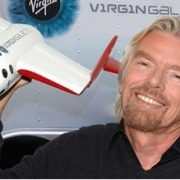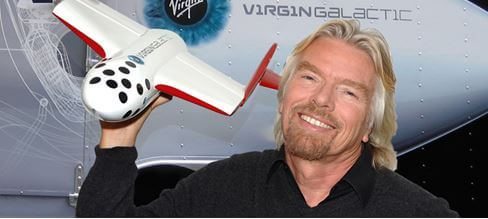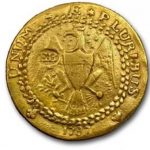Flying with Sir Richard Branson
As I boarded a Virgin Atlantic 747 to fly from New York to London a few weeks ago, who did I find in the seat next to me, but my old friend, Sir Richard Branson.
I first got to know the shaggy haired billionaire entrepreneur 36 years ago in London. I lived in a Georgian mansion I had lovingly restored in London?s Little Venice district, and he lived in a historic canal boat next door. The traffic in and out of his floating home was constant and never ending.
This was during his adventurer period, when he set a new record for crossing the Atlantic in a speedboat, and then repeated the feat in a high altitude balloon. He almost made it, crashing into the sea just west of Scotland.
It was about this time that he was traveling from Puerto Rico to the Virgin Islands to visit a new girlfriend. American Airlines cancelled the flight because there were not enough passengers.
So the ever enterprising Richard took up a collection among the grounded passengers and chartered a plane of his own, flying them all to his destination.
He knew he had had stumbled on the kernel of an idea. He spent the next day checking out lease rates for used 747?s.
A few months and a couple of government subsidies later, and the Virgin Atlantic Airways was born, pursuing a discount priced, premium service business model that has proven wildly successful.
I always fly Virgin, including the Atlantic, America, and Australia derivations.
British Airways did everything it could to put him out of business. It launched a fierce ?dirty tricks? campaign that included calling Virgin customers and telling them their flight was cancelled, and deliberately losing transferred luggage.
BA got busted, and ended up paying Virgin millions in damages. Some 33 years later, 18 Trans Atlantic competitors have gone bankrupt, while Virgin Atlantic prospers.
Once we were flying to Moscow together, he on one of his endless promotions (I think he drove a tank across Red Square), and me on some undisclosed government business (we won). He then asked me if I would like to land the plane going into Sheremetyevo Airport.
I said ?Sure.?
Flying into Moscow during the Cold War was a big deal, a logbook entry to be envied by other pilots and flight examiners alike.
So Richard escorted me into the cockpit and said, ?My friend, Captain Thomas, will be taking it in from here.? Without saying a word, the copilot stood up and I took the right hand seat. They knew the drill.
That was pure Richard, gracious all the way.
It wasn?t long after that that Richard almost killed himself bungee jumping off the top of a hotel in Las Vegas in a 50-knot wind. Then, his family finally asked him to take it easy.
I have the same problem.
These days I often bump into Sir Richard on the lecture circuit. I instruct the audience about how to make money in the stock market, as is my way. Richard then enthralls them on how to spend it.
We make a great team, although the ladies at the following receptions always seem far more interested in him than in me.
I wonder why?
Richard suffered a rare setback a couple of years ago when his Virgin Enterprise space ship crashed on a test flight while approaching 1.4 times the speed of sound, killing the pilot. He spent a day of soul searching with his team of 400 engineers, trying to gauge whether this was a fool?s errand.
In the end, he decided to continue on. Space is dangerous, and sometimes people die, but that is no reason to quit. His goal is to turn the project into a global airline that can take passengers from San Francisco to Australia in minutes, and ferry guests to his hotels in space.
Some 800 customers have already made $80 million in deposits on the inaugural space flight, joining the 500 who have already made it there since 1959.
Richard doesn?t think small.
He has suffered from dyslexia throughout his life, struggling to accomplish simple tasks that others do with ease. I have seen this before, a disability that supercharges people to overcome it, which they overshoot to accomplish great things.
To this day, he confesses to not having the slightest idea of how a balance sheet or income statement works. That?s quite a confession coming from a man who runs a global multibillion dollar empire. He was always the marketing guy, never the numbers man.
But he has a vague idea. One of his board members once drew a picture of fish being captured by a net in the sea. The water passing through the net was the gross sales, he explained, while the fish were the profit. He got it instantly.
Putting in an all nighter over brandy over the Atlantic discussing the important affairs of the world, Sir Richard and I arrived at Heathrow the next morning, somewhat the worse for wear.
He was met by an admiring staff, who whisked him off to a waiting Daimler limousine. I trudged off to customs and the Paddington Express.
?Next year,? I thought, ?Maybe next year.?



